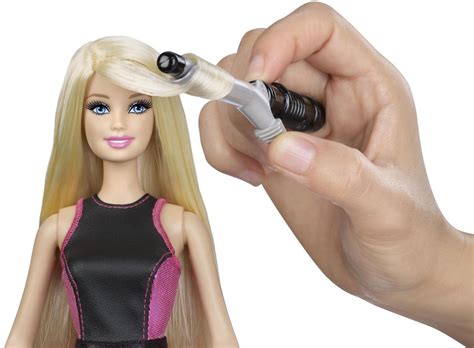Unlock the secrets of luscious, radiant hair with our comprehensive guide to the best oils for your precious locks. Discover the transformative power of these hair elixirs, each handpicked for its unique benefits and ability to address your specific hair concerns.

Why Choose Natural Oils for Hair Care?
The allure of natural oils lies in their inherent nourishing and rejuvenating properties. Unlike synthetic products laden with harsh chemicals, oils penetrate deep into the hair shaft, delivering essential nutrients without stripping away its natural oils. This gentle approach promotes hair growth, strengthens strands, and restores vibrancy from root to tip.
Key Ingredients to Look for in Hair Oils
When selecting the perfect hair oil, consider the following key ingredients:
- Antioxidants: These compounds combat free radical damage, protecting hair from environmental stressors and premature aging.
- Fatty Acids: These nourishing fats strengthen the hair cuticle, enhance elasticity, and reduce breakage.
- Vitamins: A treasure trove of vitamins, including A, E, and D, promote healthy hair growth and prevent dryness.
The Best Oils for Every Hair Type
Dry Hair
- Argan Oil: Rich in fatty acids and antioxidants, this oil deeply moisturizes and repairs damaged hair, leaving it soft and silky.
- Coconut Oil: With its high penetrating power, coconut oil nourishes the hair from within, providing intense hydration and reducing frizz.
Oily Hair
- Jojoba Oil: Resembling the skin’s sebum, jojoba oil regulates oil production, preventing greasy roots while maintaining a healthy scalp.
- Tea Tree Oil: Known for its antifungal and antibacterial properties, tea tree oil clarifies the scalp, reducing excess oil and promoting a balanced hair environment.
Fine Hair
- Argan Oil: The lightweight formula of argan oil adds volume and shine to fine hair without weighing it down.
- Grape Seed Oil: Rich in antioxidants and vitamin E, grape seed oil strengthens hair, preventing breakage and promoting thicker, fuller strands.
Thick Hair
- Avocado Oil: This ultra-nourishing oil penetrates deeply into thick hair, providing intense moisture and preventing dryness.
- Olive Oil: The antioxidant-rich properties of olive oil protect hair from damage, leaving it healthy and lustrous.
Innovative Ways to Use Hair Oils
Beyond traditional applications, explore these creative ways to unlock the full potential of hair oils:
- Pre-Shampoo Treatment: Apply oil to dry hair before shampooing to deeply penetrate and nourish strands.
- Leave-In Conditioner: Mix a few drops of oil with your favorite conditioner for added moisture and protection.
- Scalp Massage: Warm a small amount of oil and gently massage it into the scalp to promote circulation and stimulate hair growth.
- Hair Perfume: Add a few drops of fragrant oils, such as lavender or rosehip, to your conditioner or leave-in treatment for a delightful scent that lingers.
Table 1: Comparison of Hair Oil Benefits
| Oil | Dry Hair | Oily Hair | Fine Hair | Thick Hair |
|---|---|---|---|---|
| Argan Oil | ✓ | ✓ | ✓ | ✓ |
| Coconut Oil | ✓ | X | X | ✓ |
| Jojoba Oil | X | ✓ | ✓ | X |
| Tea Tree Oil | X | ✓ | X | X |
| Grape Seed Oil | ✓ | X | ✓ | X |
| Avocado Oil | X | X | X | ✓ |
| Olive Oil | ✓ | X | X | ✓ |
Table 2: Hair Oil Nutritional Profiles
| Oil | Fatty Acids (%) | Antioxidants (ppm) | Vitamins |
|---|---|---|---|
| Argan Oil | 80 | 1200 | A, E, D |
| Coconut Oil | 92 | 800 | E, K |
| Jojoba Oil | 50 | 700 | A |
| Tea Tree Oil | 10 | 1500 | None |
| Grape Seed Oil | 70 | 1000 | C, E |
| Avocado Oil | 60 | 900 | A, E, K |
| Olive Oil | 77 | 1200 | A, E, K |
Table 3: Pros and Cons of Hair Oils
| Oil | Pros | Cons |
|---|---|---|
| Argan Oil | Nourishing, versatile, protects against damage | Expensive |
| Coconut Oil | Deeply moisturizing, reduces frizz | Can weigh down fine hair |
| Jojoba Oil | Regulates oil production, anti-inflammatory | May not be suitable for all hair types |
| Tea Tree Oil | Clarifies scalp, antibacterial | Strong scent |
| Grape Seed Oil | Strengthens hair, prevents breakage | May be too lightweight for dry hair |
| Avocado Oil | Ultra-nourishing, prevents dryness | Can be difficult to wash out |
| Olive Oil | Protects against damage, leaves hair healthy | Can be greasy for some hair types |
Table 4: FAQs about Hair Oils
Q1. Can I use hair oil every day?
A1. It depends on your hair type. For dry hair, daily use is recommended. For oily hair, stick to 1-2 times a week.
Q2. How long should I leave hair oil in?
A2. For pre-shampoo treatments, leave oil in for 30-60 minutes before washing. For leave-in treatments, apply a small amount to damp or dry hair.
Q3. Can hair oil cause hair loss?
A3. Typically, no. In fact, hair oils often promote hair growth. However, excessive use or application to the scalp can clog pores and lead to inflammation.
Q4. What is the best way to apply hair oil?
A4. For dry hair, apply oil from mid-lengths to ends. For oily hair, focus on the scalp and avoid over-applying.
Q5. Can I use different hair oils at the same time?
A5. Yes, but start by combining 2-3 oils and gradually increase based on your hair’s needs.
Q6. Can hair oil damage colored hair?
A6. Some oils, like coconut oil, can temporarily lift hair color. However, most oils are safe for colored hair when used in moderation.
Q7. How often should I shampoo my hair when using hair oil?
A7. Shampooing frequency depends on your hair type and oil usage. For oily hair, shampoo more often. For dry hair, shampoo less frequently to preserve moisture.
Q8. Can hair oil help with scalp psoriasis?
A8. Some studies suggest that certain oils, like jojoba and coconut oil, may soothe psoriasis symptoms. However, consult a dermatologist for personalized advice.
